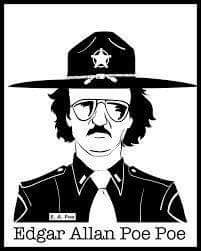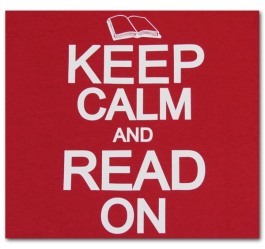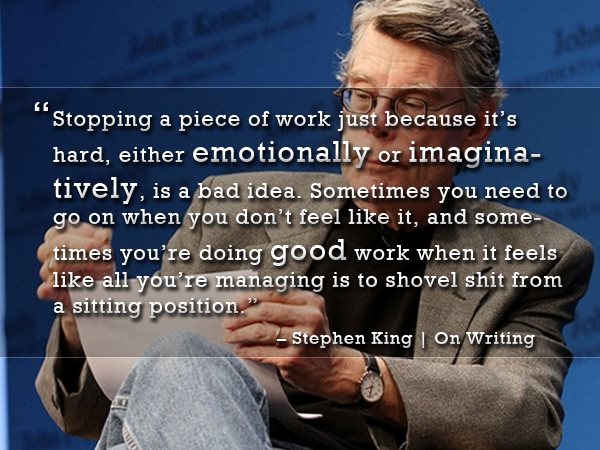Of all the things I have in mind to write about now that I’m reviving the blog, this one got shoved to the forefront. A comment was made in a writing group on Facebook the week before last that nearly set my hair on fire. Someone asked a question about why it takes so long to write a novel.
Most of the responses were decent enough – day jobs, families, every writer being different, etc. Then there was one…
“Romance novels take like a week or two. I’d guess most others take a few months.”
My initial response was less than professional. I immediately wanted to tear the guy a new asshole in thirty different ways. I wanted to point out all the issues with that statement and how obnoxiously untrue its implications really are. Then I walked away from the internet, took a breath, and remembered that people tend to talk out of the sides of their necks.
My actual response was a suggestion that unless it was meant jokingly (there’s another issue here…we’ll address it in a minute), then it was highly offensive to actual romance writers. Of course the guy came back immediately with the “I’m just joking around” statement, but the damage was already done.
Contrary to what the internet troll community seems to believe, romance writers are not just horny ho-bags sitting behind a computer looking to get laid. We aren’t sleazy barflies. We’re not strippers or hookers or any of those ridiculous stereotypes the internet has built around the concept of “romance writer”. Nope…we’re hard-working women (and men, because I know quite a few men who write fabulous romance) with families and morals and a very keen understanding of human nature.
We’re the woman next door, or in front of you in line at the grocery store. While some romance writers base their books on their experiences, most of us don’t. Most of us are dreamers who love the idea of a happy-ever-after. We create ideal relationships as we would love to experience them, and then we share our dreams with the rest of the world so they can fall in love with us.
But it’s really more fundamental than that… forget that we’re romance writers. We’re still writers.
Here’s the thing, kids… writing any book of quality is hard work. It doesn’t matter what the genre is, if you’re going to write a story that has a plot and substance beyond sex (another point for down the post), then you’re going to be doing character and world building, plotting, planning, and research.
Being that I write in multiple genres, I can honestly tell you that writing romance is harder than writing speculative fiction. When you’re playing with human emotion, you have to get it right, and there’s no room for error. Your characters have to be believable, relatable, and consistent. People read romance for the emotional value and gratification. They read it so they can experience what the main characters experience. They do it to fall in love.
Yes, some people prefer Erotica. Erotica is a totally different animal – the focus of the story is on the sex, not on the relationship. In many cases you get both (hence Erotic Romance — which, by the way, uses sex as a plot device to further the romantic relationship), but the primary motivator of the text is explicit sexual gratification. Humankind has proven more than once that you can have sexual gratification without emotion, and you quite often find that emotionless dynamic in erotic literature. I know many, many authors who write erotic literature, and yes, they do finish books in a couple of weeks.
By book, we’re usually talking 20,000 word or less novella. Single scene, no through-story. One and done. That’s their market and they write to it. There’s very little that changes in sex. Tab-A, Slot-whatever, repeat, repeat, repeat. They just find creative ways of framing the act. I can tell you from experience, writing sex is much easier and faster than following an extensive plot.
There’s nothing wrong with that, either. It gives readers the opportunity to explore new scenarios without diving into lifestyles they know nothing about. It also offers that gratification in a safe and secure manner, in the privacy of one’s home.
But erotic literature isn’t what we’re talking about here. We’re talking about romance. Yes, they are different things. Pretty much any writer of either will agree.
*
Back to the point…or points, as this post would have it:
Point #1: “Writing Romance is Easy.”
This pisses me right the hell off every time some asswipe says it. It isn’t easy, and anyone who tells you otherwise is either not doing it right, or an idiot. It seems there are a fair few who had this brilliant idea that “hey, I’ll write a romance novel and get rich”. Uh, no. Sorry. It doesn’t work that way in most cases. Yeah, there are some who got extremely lucky, but to expect that every time is insane. Romance is the largest literary market out there, which means there are a LOT of other books and a LOT of other authors to compete against. That means you can’t just write a bunch of crappy slush and shove it onto the shelves. In order to make any money at all, you have to write GOOD romance. Which ain’t easy, kids. And it takes a hell of a lot longer than a week.
Point #2: “Writing Romance is Fast.”
Hmmm…nope again. Sorry. While yes, everyone writes at different speeds, there does need to be some real thought behind the words. (See point one about slapping out slush.) Slapping out a poorly edited book is going to do awful things for you as a writer, for the market itself, and for the genre as a whole. I’m willing to bet a large portion of the reason romance writers are frowned upon by others is that there are so many who DO push out unedited slop just to make a buck. I’ve stopped being nice in reviews about that, too. And yes, I DO review.
But back to the idea of “fast”. Everyone is different. Some people can push out a novella in two weeks or so. I can’t. I also don’t know anyone personally that can. But I an my local contemporaries write much slower than a stay-at-home-mom who has two kids in grade school and six hours a day to sit in front of the computer uninterrupted. I have a day job, small children, and other obligations. My time is limited. My process is also much different than hers. I think very hard about every word that goes onto the page. I’m not a “write it all first and edit later” kind of person because the typos will run me up the wall and across the ceiling. While process plays heavily into the end product, the end product still has to have substance to stand up in the market.
Point #3: It Ain’t All About the Sexy, y’all.
Your focal point is what dictates whether you’re writing romance or erotica. Yes, romance can have sex and erotica can have plot, but there’s a very clear distinction between the two. As I said above…it’s emotional vs. physical. Some of the best romance novels I’ve ever read don’t have explicit sexual content. Hell, some of them don’t even have sex. You don’t have to have physical activity in your work to tell a satisfying story. They’re two very different things. And while neither of them should be denigrated by anyone, there needs to be a bit of education among the masses. There’s nothing wrong with writing either, and there certainly isn’t anything wrong with erotic romance. And anyone who wants to say otherwise can kiss my lily-white ass. Please and thank you.
*
So that having been said, next time you decide to let fly an aloof and insulting comment about romance writers, think twice. We aren’t stupid. We practice our craft just like any other writer. We take pride in what we do. And you’re likely to end up as the next adulterous prick in one of our books.


 My mother is a voracious reader. So am I. So are the people by whom I’m surrounded. Yes, we do troll the bargain bins from time to time, but that isn’t where we spend the majority of our lives.
My mother is a voracious reader. So am I. So are the people by whom I’m surrounded. Yes, we do troll the bargain bins from time to time, but that isn’t where we spend the majority of our lives. The Perfect Review DOES NOT EXIST.
The Perfect Review DOES NOT EXIST. story for cash. I love reading as much as I love writing, and I often find myself disappointed by what I’m reading because it doesn’t share the love I feel for the craft. Emotion plays heavily into writing. I want to feel what the characters feel and see what they do. I don’t want to go through the motions of being in love because this chick is supposed to fall for this half-vampire werepanther. If she’s going to be in love with something so sensational, I want to suspend my disbelief and be in love with her. Likewise, if a psycho clown is on a killing spree in my bedroom, damn it I want to feel like I’m next.
story for cash. I love reading as much as I love writing, and I often find myself disappointed by what I’m reading because it doesn’t share the love I feel for the craft. Emotion plays heavily into writing. I want to feel what the characters feel and see what they do. I don’t want to go through the motions of being in love because this chick is supposed to fall for this half-vampire werepanther. If she’s going to be in love with something so sensational, I want to suspend my disbelief and be in love with her. Likewise, if a psycho clown is on a killing spree in my bedroom, damn it I want to feel like I’m next.
 There comes a point in every writer’s life when he or she has that moment. You know what I’m talking about…that second of sheer terror when a rogue thought appears and begins planting seeds of doubt.
There comes a point in every writer’s life when he or she has that moment. You know what I’m talking about…that second of sheer terror when a rogue thought appears and begins planting seeds of doubt. I have twenty-three unfinished works in my In-Progress folder. Twenty-three of these little monsters are things with mostly- or fully-formed plots in varying stages of completion. Some are short and some are long. They could be something one day. If we expand that to all of the unfinished things I’ve started over the years, we jump to somewhere above eighty. Granted not all of these are marketable things. Many of them are bits and pieces of things that have come and gone and will likely never see the light of day. Some of them are stream-of-consciousness writing, or scenes from dreams… things which could one day be used to fill in gaps in a plot somewhere. My point is, there’s a lot of stuff just hanging out there in the bowels of the cloud, waiting for a day in the sun.
I have twenty-three unfinished works in my In-Progress folder. Twenty-three of these little monsters are things with mostly- or fully-formed plots in varying stages of completion. Some are short and some are long. They could be something one day. If we expand that to all of the unfinished things I’ve started over the years, we jump to somewhere above eighty. Granted not all of these are marketable things. Many of them are bits and pieces of things that have come and gone and will likely never see the light of day. Some of them are stream-of-consciousness writing, or scenes from dreams… things which could one day be used to fill in gaps in a plot somewhere. My point is, there’s a lot of stuff just hanging out there in the bowels of the cloud, waiting for a day in the sun.
